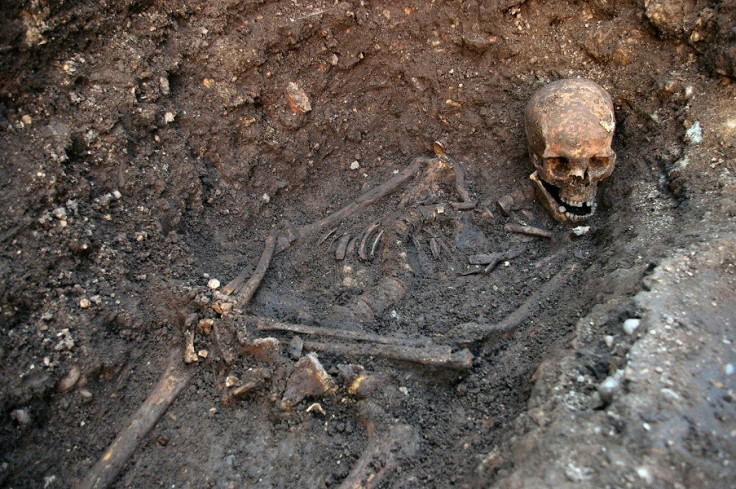King Richard III Suffered from Foot-Long Roundworms

King Richard III suffered from a roundworm infection, with foot-long parasites living in his intestines.
Research published in The Lancet showed that the soil in the pelvic area of Richard's skeleton was infested with roundworm eggs.
Scientists at the University of Leicester discovered the skeleton underneath a car park last year and have been analysing his remains ever since.
Richard II ruled England between 1483 and 85. He died at the Battle of Bosworth Field from several blows to the head, suggesting he lost his helmet while fighting.
A team of researchers from the Department of Archaeology and Anthropology at the University of Cambridge used a powerful microscope to examine the soil samples.
It showed multiple roundworm eggs in samples taken from the pelvis, where Richard's intestines would have been situated before his flesh rotted away.

Because there was no sign of eggs in soil taken from the skull, and few in the soil surrounding the grave, the researchers believe he was suffering from a roundworm infection.
Jo Appleby, Lecturer in Human Bioarchaeology at the University of Leicester, said: "Despite Richard's noble background, it appears that his lifestyle did not completely protect him from intestinal parasite infection, which would have been very common at the time."
Most soil from medieval Britain shows some form of contamination as human waste was often thrown into the streets. Farmers also used it as crop fertiliser, allowing it to spread quickly. However, thorough cooking can kill off the parasite.
People become infected with roundworms after they ingest their eggs from contaminated food or water. The eggs then hatch into larvae and migrate through the tissues of the body to the lungs, where they mature.
Once grown, they crawl up the airway into the throat, where they are swallowed back down into the intestines. They can grow to around one foot long.

Although rare in the UK, roundworm is the most common health condition in the world today, affecting one in four people globally.
Research leader Piers Mitchell said: "Our results show that Richard was infected with roundworms in his intestines, although no other species of intestinal parasite were present in the samples we studied.
"We would expect nobles of this period to have eaten meats such as beef, pork and fish regularly, but there was no evidence for the eggs of the beef, pork or fish tapeworm. This may suggest that his food was cooked thoroughly, which would have prevented the transmission of these parasites."
Symptoms of roundworm Richard III may have suffered include a cough, difficulty breathing, a fever, stomach pain, vomiting, lack of appetite and diarrhoea.
Simon Brooker, from the London School of Hygiene and Tropical Medicine, told the BBC it was unlikely Richard was too badly affected by the infestation: "Where you've got a large number of worms combined with poor nutritional intake, the consequences can be quite severe.
"I expect Richard III's exposure would have been low compared to the people he ruled over. It would have been somewhat of a nuisance rather than having had any severe consequences."
© Copyright IBTimes 2025. All rights reserved.






















